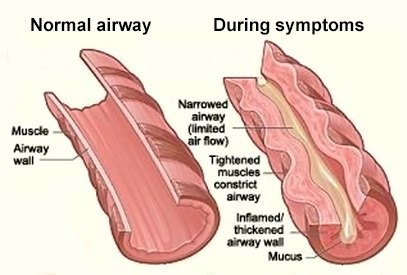You may realize that shortness of breath may come in different forms ranging from situations of going up a flight of stairs or laying down for a nap.
Emergency calls regarding shortness of breath are the third most common type of distress calls.
Shortness of breath can be caused by different reasons that vary from person to person. Recognizing when you have shortness of breath can help you and your doctor solve the problem.
What is Shortness of Breath?
Shortness of breath is just that–the inability to receive enough air in your lungs with each breath.
It can cause coughing, panic, or waking in the middle of the night. If any of these have happened to you, consult your doctor.
What Causes Shortness of Breath?
Heart Failure
Approximately 1 in 4 people die of heart disease yearly and it remains the leading cause of death in both men and women in the United States.
Heart failure is when your heart is not able to pump properly or fill with blood. This does not mean that the heart stopped working, but the body is not receiving the blood supply that it needs.
Shortness of breath is a symptom of heart failure since the blood vessels and arteries in and around the heart and lungs don’t get sufficient blood. Without blood, they have to work harder and are strained.
Most commonly, experiencing shortness of breath occurs when lying down or waking up in the middle of the night from coughing or inadequate oxygen.
Stress and Anxiety
About 18% of the U.S. population deals with anxiety. Demands from work and home can weigh heavily on a person, creating an anxious feeling. Anxiety and stress take a toll both mentally and physically..
Stress and anxiety cause the muscles in the chest to tighten. As a result, breath becomes restricted since deep breaths aren’t possible in that situation. To compensate for the lack of air, we breathe faster. However, the quickened breaths and lack of oxygen can combine to create a panic attack.
Asthma
Asthma is a common cause of shortness of breath. Asthma is caused by inflammation of breathing airways that limit the amount of air flow. The airways become inflamed and swollen as a reaction to airborne particles, like pollen or dander.

When such a reaction occurs, the muscles around the airways constrict and narrow which restrict the amount of airflow to the lungs.
As the picture depicts, the airways’ space is extremely limited by the mucus buildup and swelling. Not everyone with asthma may recognize the symptoms since they aren’t always severe or last long. If you feel like you’ve had these symptoms more than once, check with your doctor to see if there is a solution for you.
Obesity
Obesity isn’t always associated with being one of the causes for shortness of breath, but many who are overweight or obese are familiar with it.
Extra weight on a person’s chest, especially while lying down, makes it difficult to achieve deep breaths and inhale enough oxygen to feed the entire body. As a result, short, quick breaths are necessary to compensate.
Additionally, excess belly fat leads to more difficulty for air to reach and fill the lungs. Research has shown that people who have a larger waist circumference exhale a lower amount of air than people with normal waist circumferences.
If you feel you have experienced any of these symptoms or suffer from them, please consult your doctor so that you can find the best solution.
For solutions that you can do on your own, look for our next blog that will address the topic.
Resources
http://www.cdc.gov/nchs/fastats/asthma.htm

